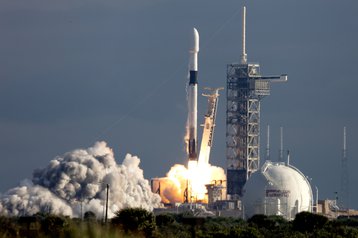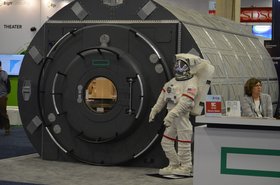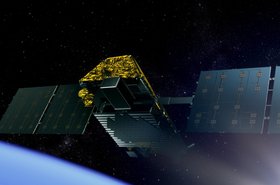SpaceX carried out its first mission for OneWeb after the company sent 40 satellites to Low Earth Orbit on a Falcon 9 rocket.
It was the first launch that SpaceX has carried out for a rival broadband competitor to its subsidiary Starlink, and is the first of three missions it's partnering with OneWeb.
SpaceX's Falcon 9 rocket took off yesterday (December 8) from Kennedy Space Center, Florida, at 5:27 pm Eastern time, and released the satellites over three separation sequences about an hour and a half later.
LEO satellite firm OneWeb signed a contract to work with SpaceX earlier this year after its original launch schedule was thrown into turmoil in the wake of Russia’s invasion of Ukraine.
Following the launch of the satellites, OneWeb now has a constellation of 502 satellites, representing almost 80 percent of its total first-generation constellation.
OneWeb chief commercial officer Stephen Beynon says it will take about 100 days for OneWeb’s latest batch of satellites to reach their final LEO destinations to begin services, notes Space News.
The launch was slightly delayed from the original launch date of December 6 due to additional pre-launch checks. It's the 15th mission overall for British firm OneWeb.
OneWeb’s operating losses for the year increased by 631 percent due to the scrapping of several launches from Russia and the fact the unlaunched satellites haven’t been returned to the company, as the company took a $220 million hit.
OneWeb had been due to launch 36 satellites in early March via a Soyuz rocket from a Russian-owned launchpad in Baikonur, Kazakhstan. In response to Roscosmos' actions, the satellite firm announced it was no longer launching its satellites from the facility.
Meanwhile, SpaceX has launched 55 missions this year alone and has launched 3,500 Starlink satellites to date.
SpaceX was recently granted partial approval for its second generation of Starlink satellites by the Federal Communications Commission (FCC). This approval will see SpaceX allowed to construct, deploy, and operate up to 7,500 satellites.




